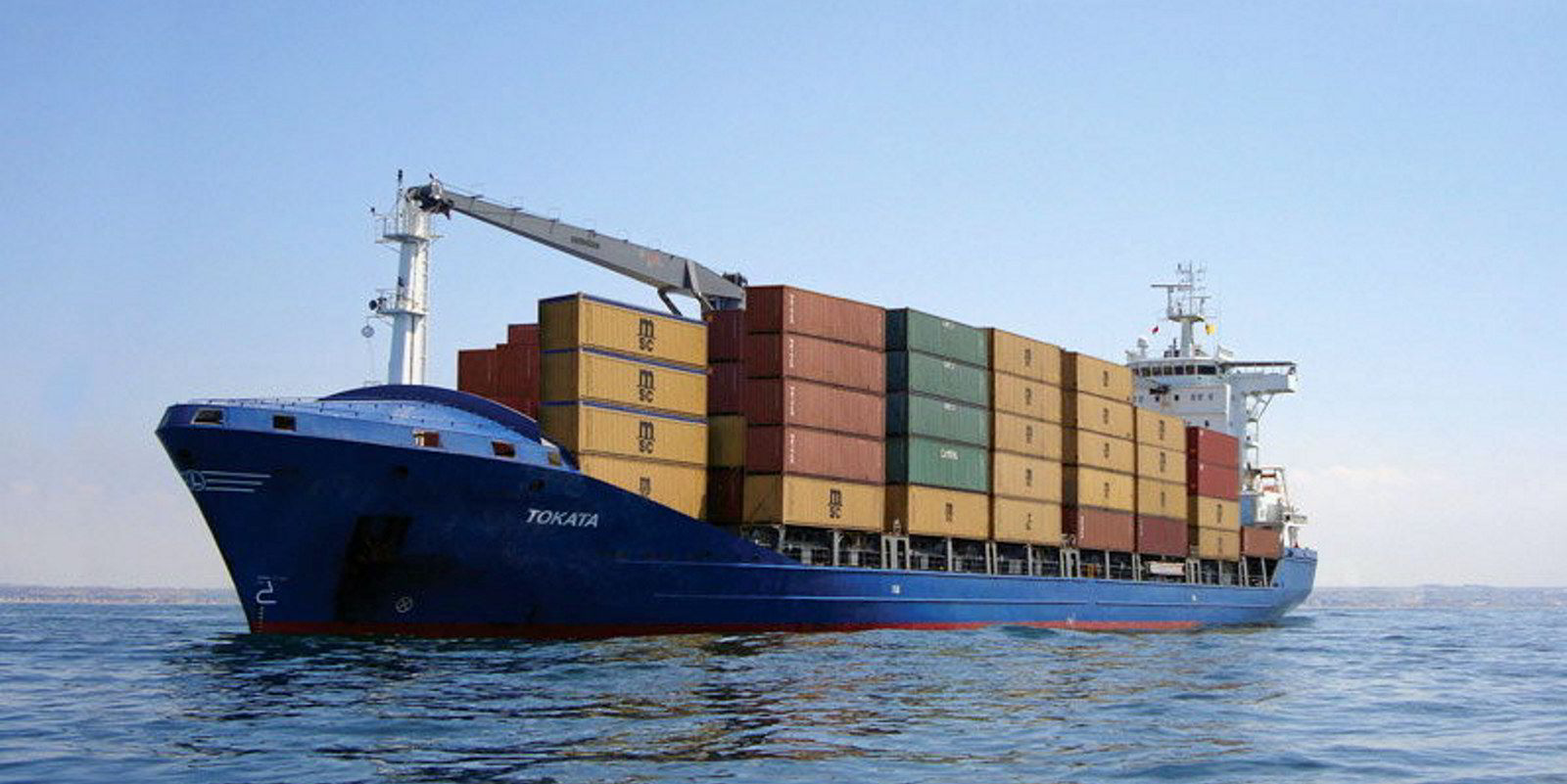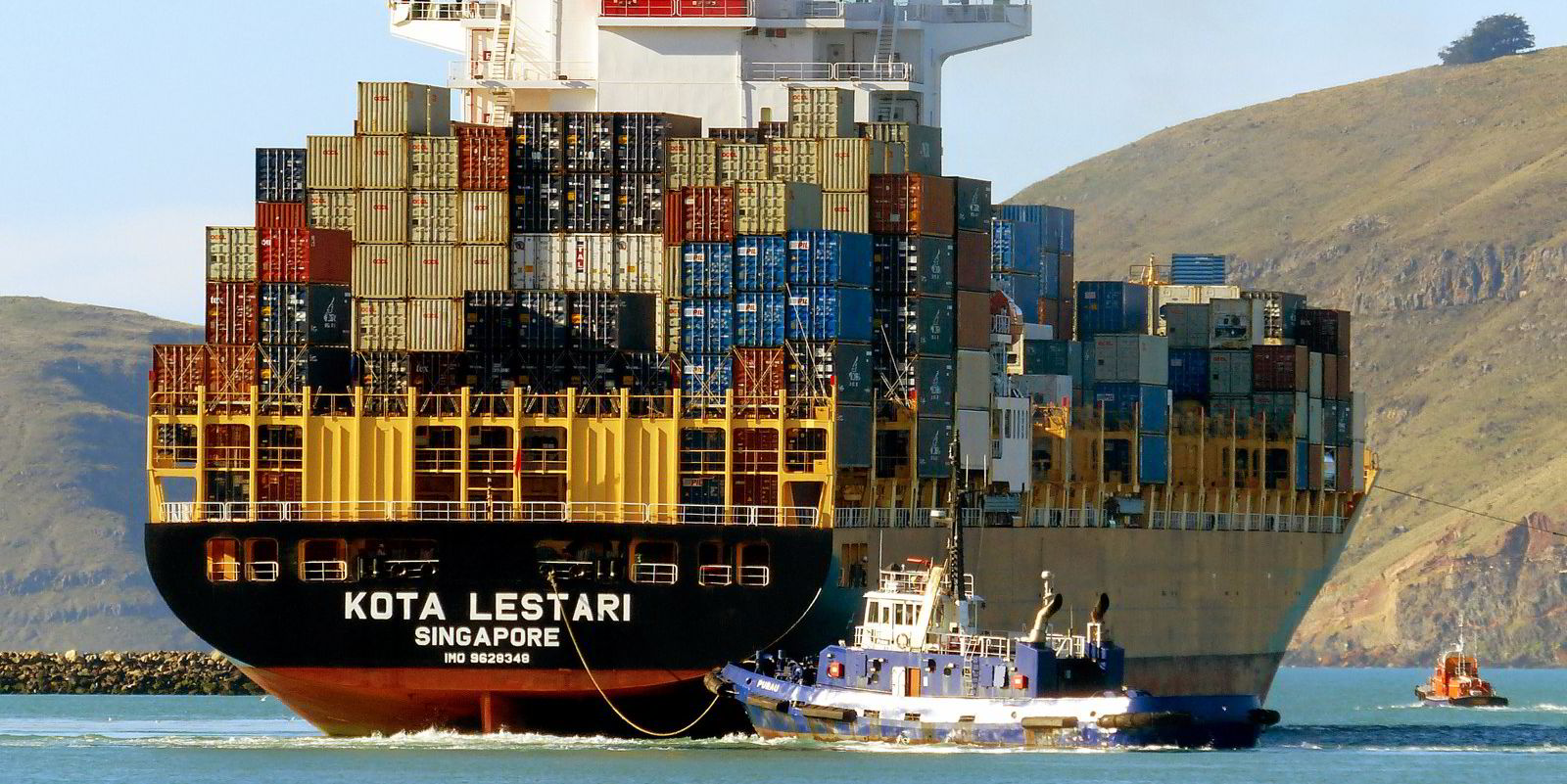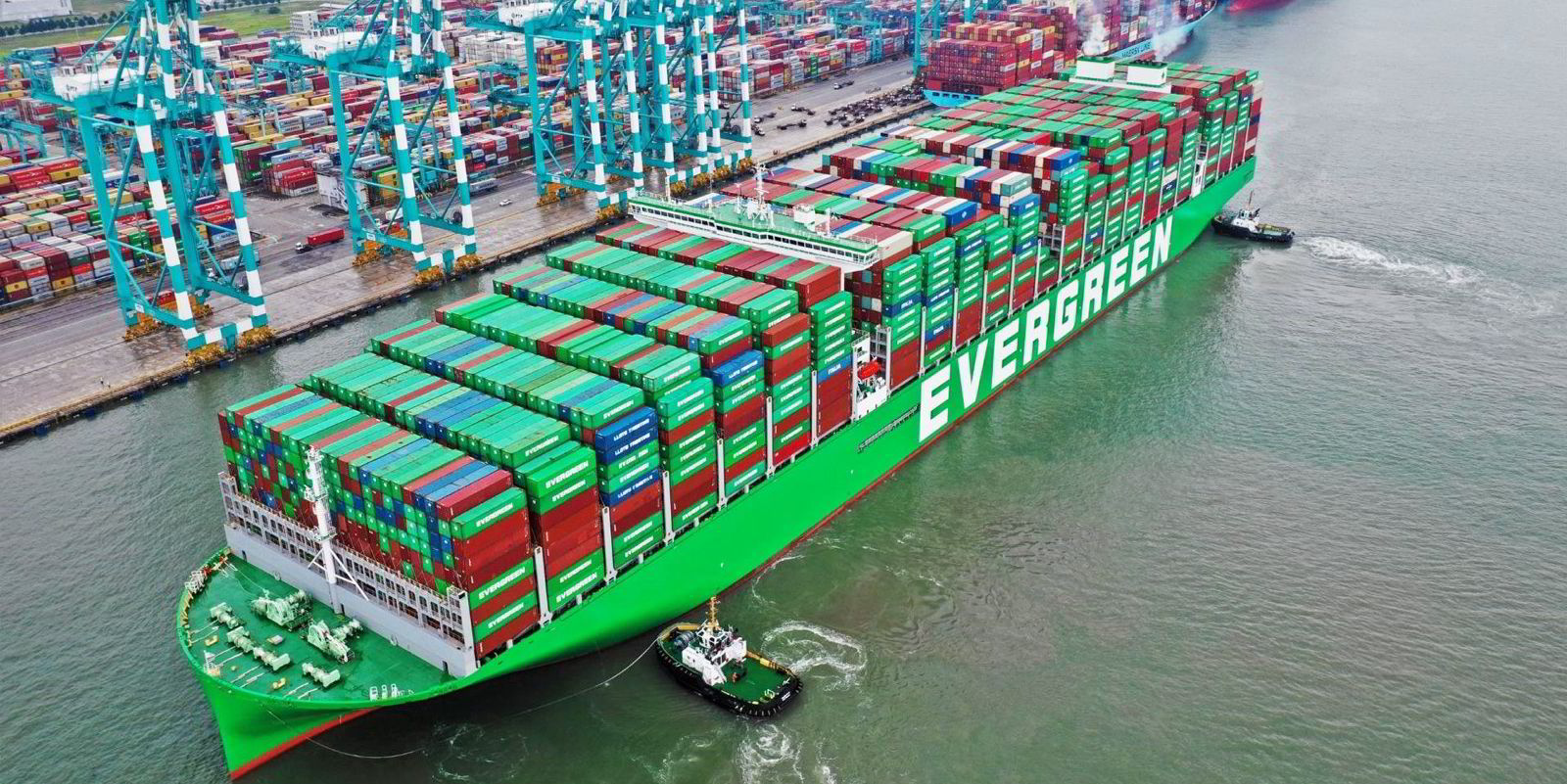The container charter and freight markets are showing further weakening, with shipowners forced to settle for lower rates and carriers opting to cancel sailings.
The lull in the charter market has enabled France’s CMA CGM to secure a brace of feeders at knock-down rates.
The move comes as 2M partners Maersk and Mediterranean Shipping Co (MSC) said they would cancel or “blank” a number of sailings scheduled for next month.
Market sources say CMA CGM has secured three feeder vessels from Nikolas Pateras-controlled Contships Management in charters together worth more than $42m.

The Greek owner has fixed the 1,118-teu Contship Vie and Contship Zoe (both built 2007) for up to 14 months with the French carrier at around $30,000 per day.
While the rate is historically high, it is down by around 25% on what might have been expected for a similar period a month ago.
In mid-March, the 12-month charter rate would be above $40,000 per day, according to assessment by New ConTex.
CMA CGM has also taken the 1,118-teu Contship Oak (built 2007) for a longer period.
The vessel has also been extended by MSC for 26 months at $24,000 per day.
The deals lift secured income for Contship’s fleet of more than 40 feeders for the next 24 months to more than $500m, according to sources.
Fundamentals for the container ship charter market remain strong, say brokers.
But owners have been forced to seek out new trades as war has seen many vessels redeployed away from Russia and Ukraine.
That has meant owners have accepted shorter one-year fixtures in place of two or three-year charters, say brokers.
Asset values slip
The uncertainty caused by the war in Ukraine has impacted on the secondhand market.
Many potential buyers have stepped onto the sidelines while awaiting clarity over the direction of the market.
That means many owners are prepared to wait until later in the year to fix vessels on period deals, brokers said.
The exception is perennially active boxship buyer MSC.
The Geneva-based company acquired the 1,129-teu Talisker (built 2001) from Pioneer Line of Singapore for around $17m, according to brokers.
The company also charters the 1,100-teu Tokata (built 2006) from Limarko Shipping of Lithuania. The vessel has been reported sold this week for an undisclosed sum.
In other sales, Germany’s Briese Schiffahrt is said to have disposed of the 1,400-teu Langeness (built 2006) for $23m.
Blank sailings
The cooling charter market mirrors falling volumes and freight rates, which have led Maersk and MSC to announce more blank sailings.
The 2M partners plan to cancel three voyages from Asia to north Europe that were originally scheduled next month.
They said they will void the sailings in May of the 16,652-teu MSC Istanbul (built 2015) and MSC Venice (built 2016), and the 19,437-teu MSC Erica (built 2016).
Spot rates on the trade fell to $11,551 per 40-foot equivalent unit (feu) in the week to 22 April — their lowest level since June 2021.
MSC blamed “the ongoing challenging market situation generating congestion and schedule delays across the supply chain”.
That reflects the shortfall in volumes from Chinese ports due to lockdown.
Maersk added that bottlenecks across the networks had led to an accumulation of delays, which could cause a ripple effect and substantial setbacks.
It said the situation is being driven by a number of external factors, chiefly terminal congestion.
The expectation is that cargo flows and export volumes will improve once lockdowns in China start to lift.
The Shanghai lockdown has caused a shortfall in cargo volumes that has also impacted rates from Asia to the US.
Rates from China to the US west coast were down 2% in the week to $15,552 per feu and $17,148 per feu to the US east coast.
Authorities in China have announced measures to reopen hundreds of factories and improve trucking availability in Shanghai.
That has impacted spot rates, measured by Freightos Baltic Index, that dropped to $9,083 per feu — its lowest level since the start of the year.
The fall is also attributed to seasonal factors ahead of peak season, as well as more volumes being locked into long-term contract, say analysts.







